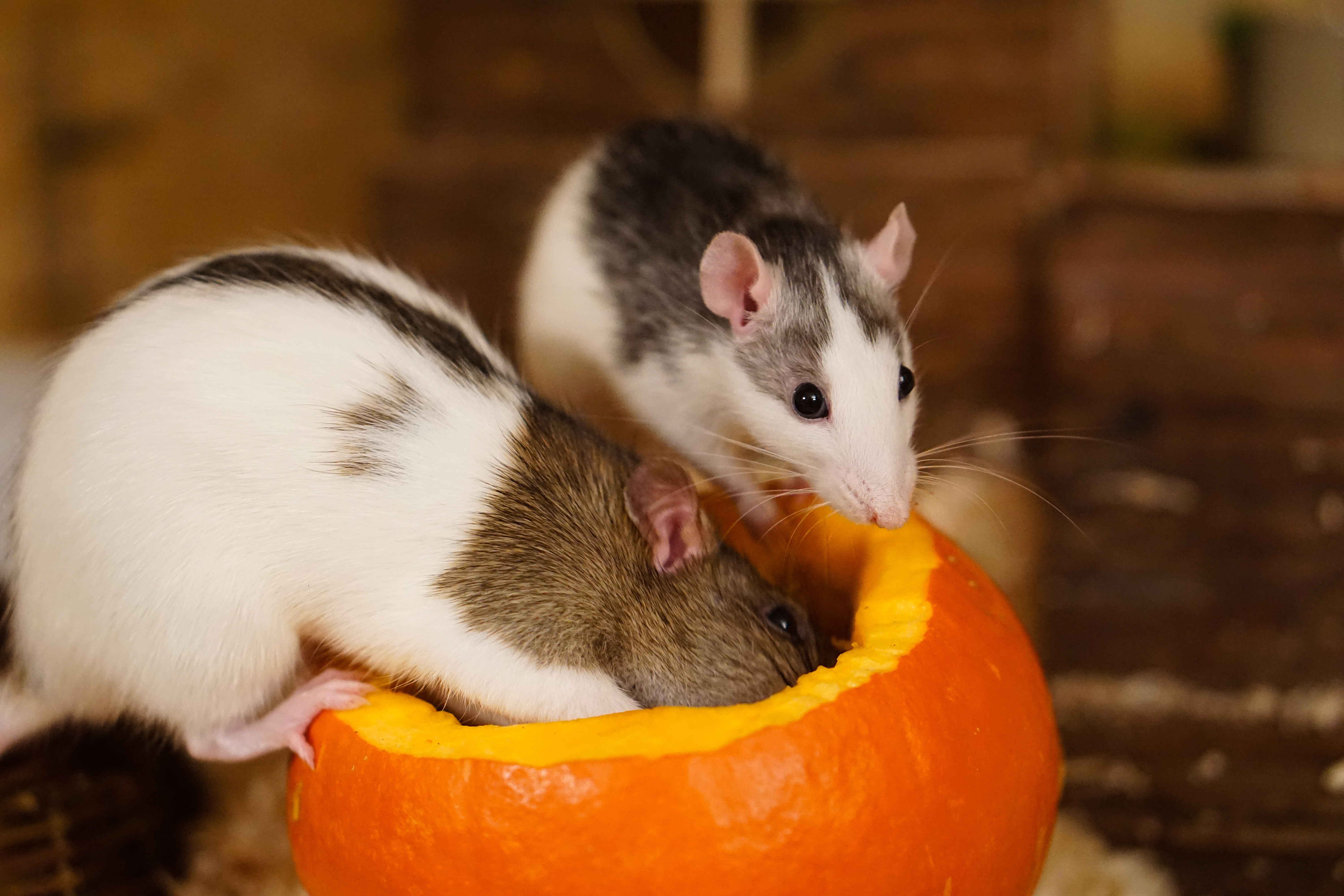In a scientific publication in the journal Emerging Infectious Diseases, researchers describe for the first time the infection of a woman with Seoul virus in Germany. The patient had contracted the zoonotic virus from her pet rat, which caused kidney failure in the patient. The discovery is due to a joint effort of the National Hantavirus Consiliary Laboratories of human medicine (located at Charité - Universitätsmedizin Berlin) and veterinary medicine (located at Friedrich-Loeffler-Institute (FLI)) together with clinicians and laboratory physicians as well as health authorities.

Fig. 1: Pet rats serve as vector for the transmission of Seoul virus to humans (picture: pixabay)
Hantaviruses (also orthohantaviruses) are RNA viruses that belong to the Hantaviridiae family. They received their name in reference to the Korean border river Hantan, where several soldiers fell ill in the mid-20th century due to a hantavirus infection. Hantaviruses are widespread worldwide. Of the hantavirus species known to date, some can cause serious illness in humans. Hantaviruses are usually transmitted by rodents, which act as reservoirs for the virus. Rodents can become infected with the virus and transmit it, but usually do not show any symptoms themselves. In Germany, infections with the Puumalavirus (PUUV), which is transmitted by the red-backed vole, have been known up to now. The Dobrava-Belgrade virus (DOBV), which uses the fire vole as a reservoir host, has also been detected in Germany. For the Seoul virus, this is the first described autochthonous infection in Germany.
Prof. Dr. Rainer G. Ulrich, member of the Internal Advisory Board of the Zoonoses Platform and head of the National Reference Laboratory for Hantaviruses at the FLI, was also involved in the study. According to Prof. Ulrich, the detection of another zoonotic pathogen in pet rats is an indication of the importance of monitoring pet rats for zoonotic pathogens. Researchers from the BMBF-funded RoBoPub network were also involved in the study.
The study is impressive evidence of the benefits of a One Health approach in zoonoses research.
The study
Hofmann J, Heuser E, Weiss S, Tenner B, Schoppmeyer K, Esser, J, et al. Autochthonous ratborne Seoul virus infection in woman with acute kidney injury. Emerg Infect Dis. 2020 Dec DOI: https://doi.org/10.3201/eid2612.200708
You can find the press release of the FLI here.
More information about Hantavirus infections here.
Contact press office FLIs
phone: +49 38351 7-1894
Mail: presse@fli.de



